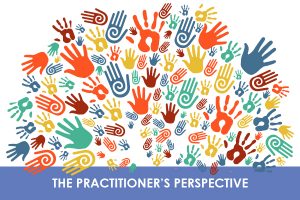Exploring Equity Issues - Blog

My Journey as an Immigrant Parent… Learning to Advocate for My Special Kid
by Gina Argotti
It was December 2013 when I arrived in the United States with my 3 kids and a big bag of hopes. It was our first time in the US and we were not coming for vacation. We knew that whatever we were going to find, we must try and do our best. We had an amazing opportunity to start our lives here with our family. At that time, I was focused on registering my kids at school and thinking about supplies and uniforms. My husband arrived before us because of his job. We spoke some English and we heard that the kids learn the language easily. We were taking our time to learn about all the processes at the school system. So many papers to read, so many rules! With the kids at different grade levels and different ages – 15, 10 and 6 years old – it was a lot of information to take in.
 We thought we understood the system, but one day a letter came from the school inviting us to a Special Education meeting. All my fears came true. I knew my kid was different and that he had been struggling at school in our home country. I was tired of the therapy, expensive schools, teachers avoiding helping him, etc., and now he was happy. He wanted to go school in the morning and was enjoying doing homework. I was so happy! But now, special education.
We thought we understood the system, but one day a letter came from the school inviting us to a Special Education meeting. All my fears came true. I knew my kid was different and that he had been struggling at school in our home country. I was tired of the therapy, expensive schools, teachers avoiding helping him, etc., and now he was happy. He wanted to go school in the morning and was enjoying doing homework. I was so happy! But now, special education.
I did not know what to expect about the process and exams, about all the meetings that follow. I had to look at the internet for information about these meetings and all the reading did not help. It seemed they were writing in Chinese. All the acronyms and names had me so confused. I was scared I wouldn’t be able to help my kid. I found the PRC (Parent Resource Center) for Special Ed., and my husband and I went there before the first school meeting. Even though they explained the process to us, I was very scared and nervous. At the first school meeting they told us about the referral and asked for authorization to do an evaluation. As we waited for the results I avoided looking for information; I was in denial. At the second meeting I was so emotional and upset. They told me that my kid has a learning disability, something I already felt, but being told all the scientific names and given all the papers and explanations… it was overwhelming. I did not know what to do.
At that time, I learned about groups of parents and began attending meetings. I started to learn about workshops, resources, and centers for helping families. But as an immigrant I did not know that my kids and I have rights. That I must advocate for them. I had been going to IEP meetings to listen, and agreed with what they (teachers) said.
Then I got invited to this workshop called ¡Adelante! (Moving Forward!). The agenda was very interesting; parent engagement, students’ rights, translation and interpretation. I went with my husband and we learned about the role of parents as advocates and leaders, parent rights in their child’s education, and the impact of parent participation. It opened my mind. Since then I feel empowered. My role at meetings has changed. Now I prepare before attending the meetings. I get the information, laws, what I need to change, what supports I believe my kids will benefit from, etc.
I became a parent leader in my community. I co-teach the other parents and I am a strong advocate in APSVA for Special Education. I am involved in a lot of projects that help immigrant families and I keep learning and educating myself. But what I am most thankful for is that because of all this my son is doing amazing at school. He became a school ambassador, honor roll student, and received a president award! It’s like a dream. Education gives you power, and knowledge is the perfect tool to help you be the advocate your kids need!
The Center for Education Equity (CEE) at MAEC is inviting members of our advisory board, partners, and other colleagues to share their views on current equity issues. Their opinions do not necessarily reflect CEE’s views or those of the Department of Education and we do not necessarily endorse any products or resources they promote.
